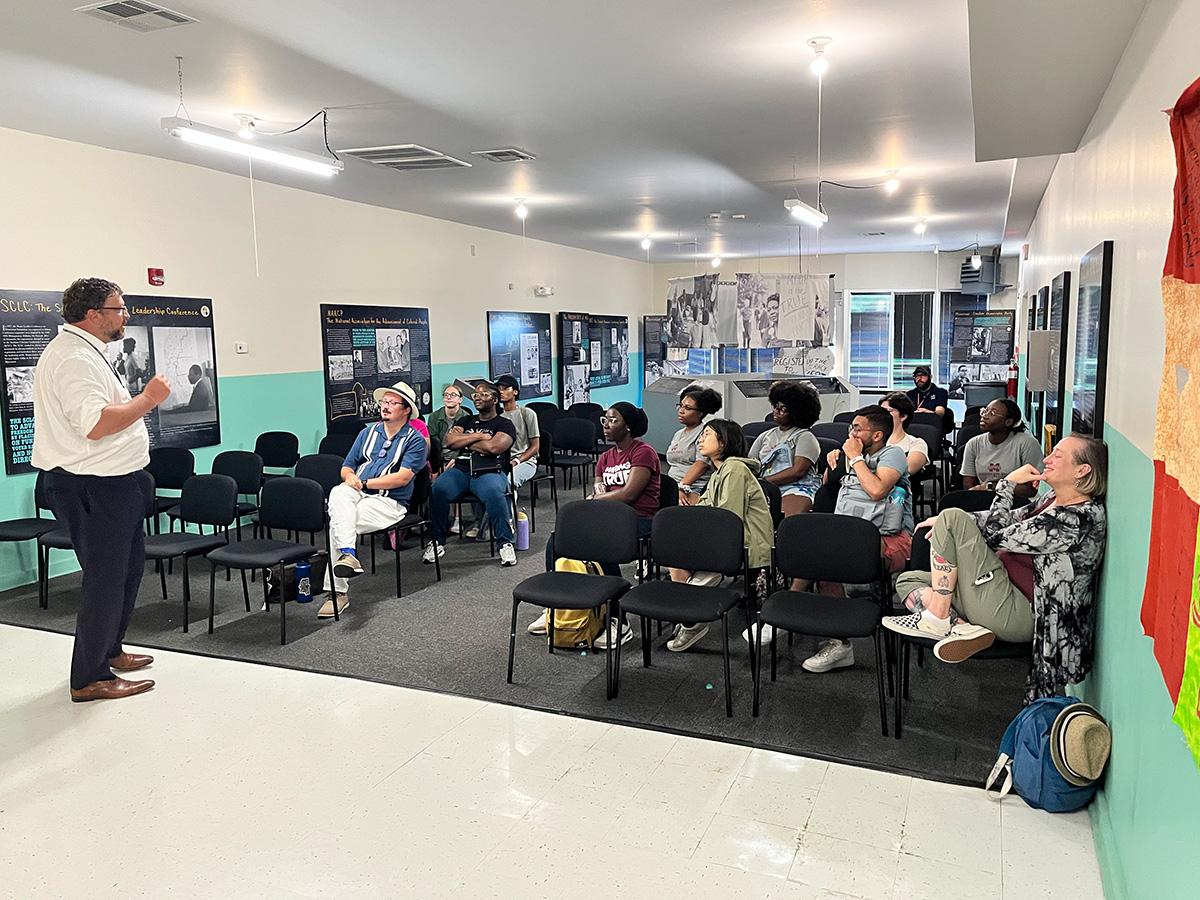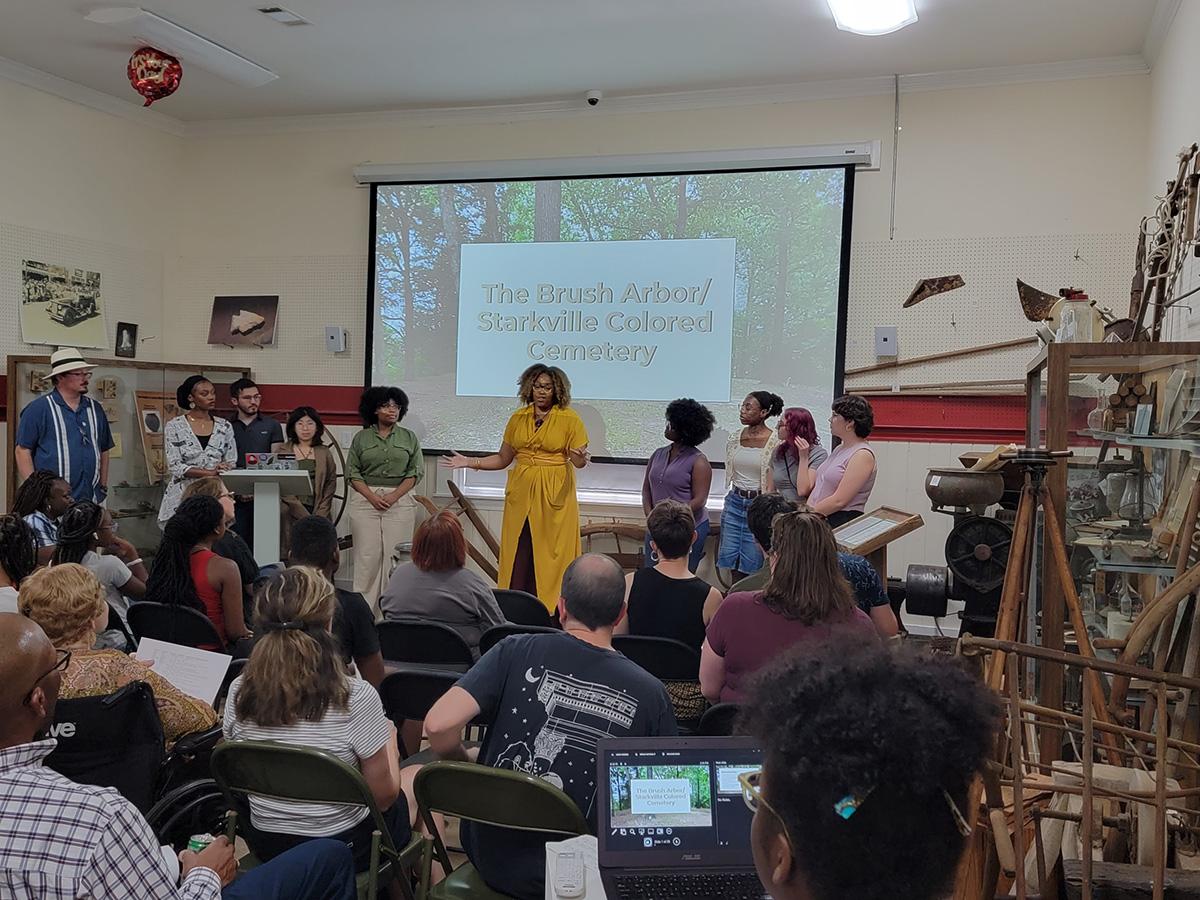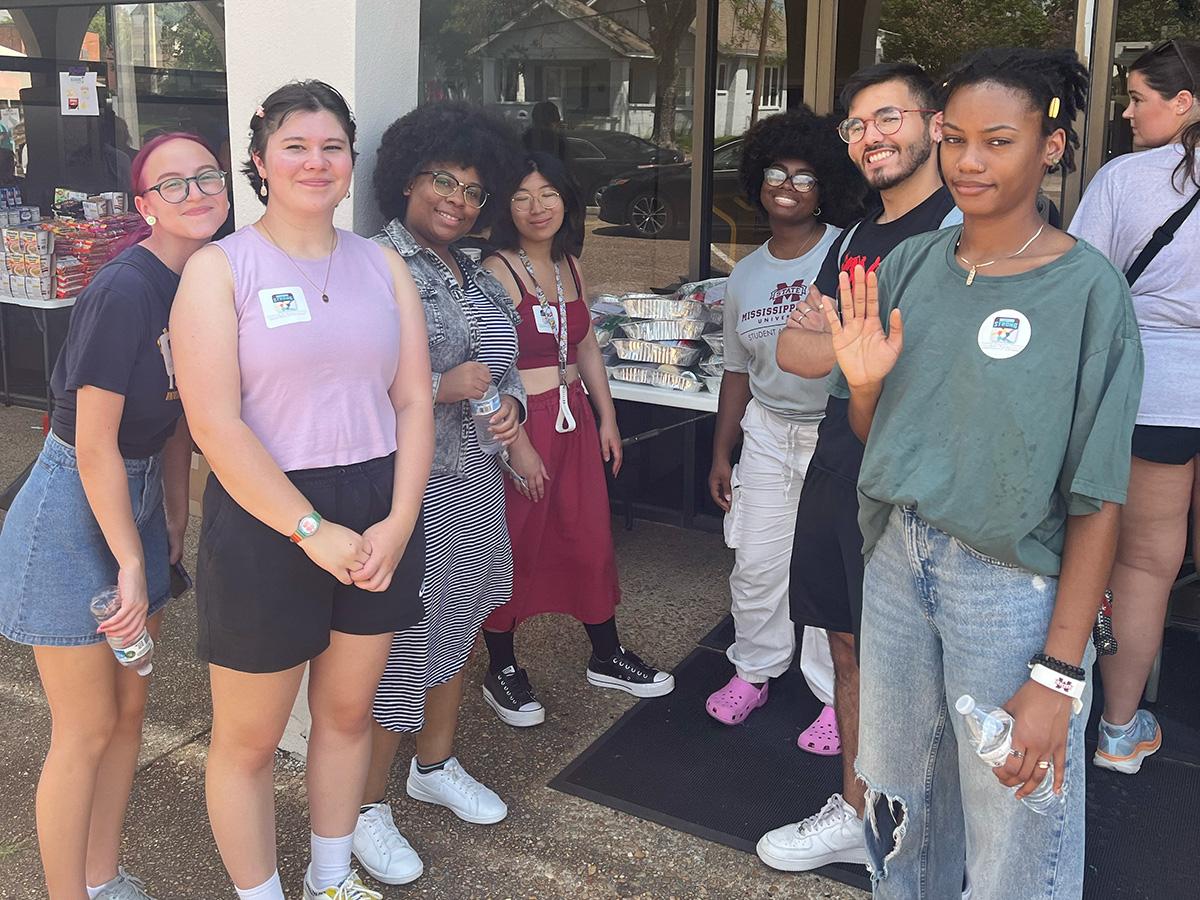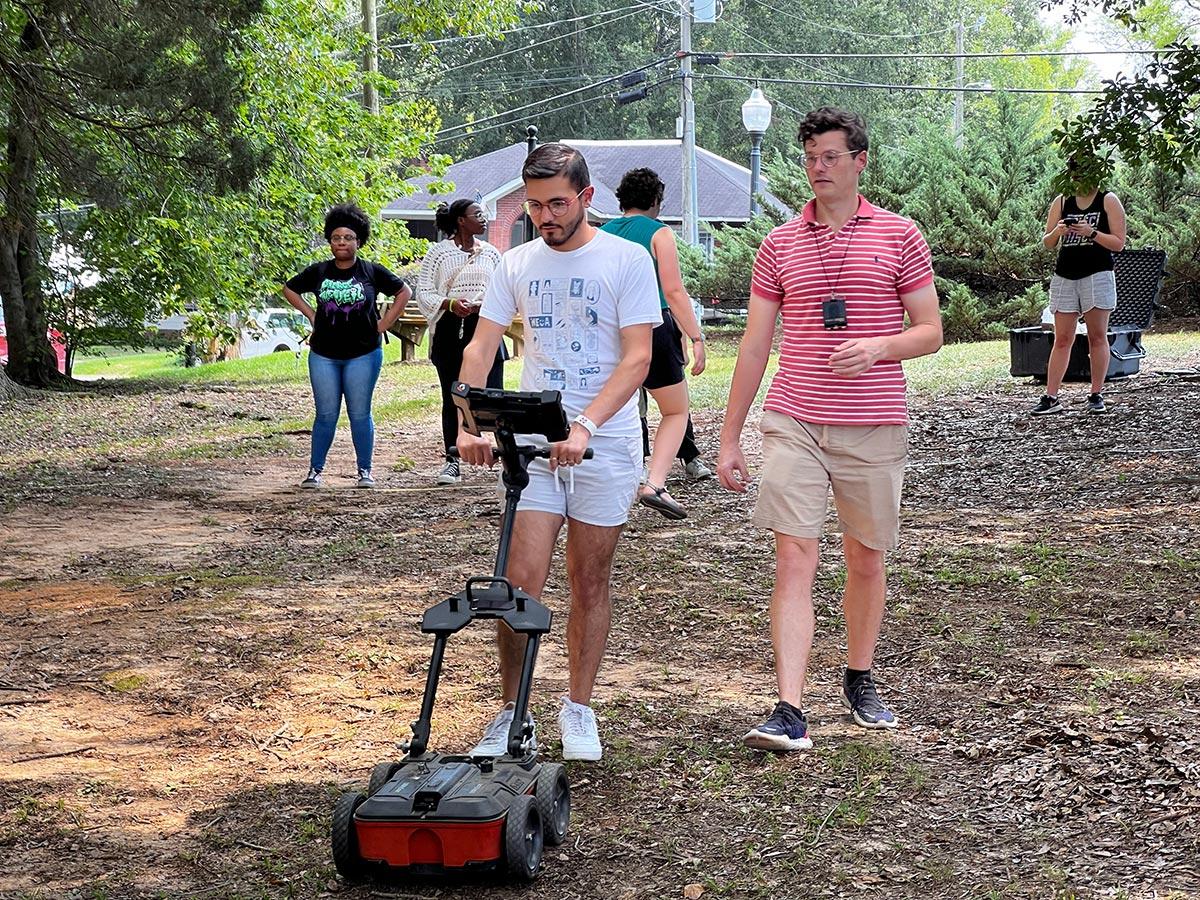About the Program

What is CEFP?
The Community-Engaged Field Program (CEFP) is a three-year community-engaged field school located at Brush Arbor/Starkville Colored Cemetery in Starkville, MS, and supported through a National Endowment of the Humanities Preservation and Access Grant.
Our aim is to teach advanced-undergraduate and graduate students interested in archival, archaeological, historical, and anthropological work to preserve African American sites through a community-based restorative model. CEFP provides a transformative learning experience for participants, particularly college seniors and above, by combining hands-on fieldwork with critical discussions on anthropology, community engagement, and Black Digital archiving to train future practitioners in the critical archival and present them with the community-engaged skills necessary to work with Black, Indigenous, and People of Color (BIPOC) populations equitably.
We outline our impact as four-fold:
- To train diverse cohorts of future anthropologists, archaeologists, and archivists on how to collect and preserve materials related to BIPOC communities in ways that are decolonial, restorative, and community-centered.
- To create a digital archive and mobile exhibit that documents the Brush Arbor/Starkville Colored Cemetery and contributes to the knowledge and accessibility of black archival records and cultural heritage.
- To connect with descendent communities in order to document and preserve oral histories that expand records related to the Brush Arbor/Starkville Colored Cemetery and African American life in the American South .
- To create community awareness of the Brush Arbor/Starkville Colored Cemetery through public archaeology projects during the field school in order to decrease the continued desecration of the cemetery space.

Why does this research matter?
Cemeteries are widely recognized as sacred spaces where those who lived before are literally and figuratively embodied within landscapes, creating places of interaction between the living and those who lived before. These hallowed grounds foster relationships, nurture souls, transmit cultural heritage, and bring the historical into the present in a tangible way that transforms terrains and communities.
It is difficult to overstate the importance of mortuary space for the creation and reinforcing of African American identity within the US. In the Segregated South, cemeteries also represented resistance to racial oppression which sought to silence and erase the presence of African American identities and personhood. While present day movements to preserve historic cemeteries are on the rise across the country, these efforts have not occurred equally. Historically black cemeteries are increasingly becoming lost due to time, erosion, and lack of care, and with them is both academic and communities’ access to these restorative records. To combat histories of neglect and the recent reimagining of the American past, training on black archival work must include collection, preservation, and community integration.

Why community engagement?
In the last five to ten years, there has been an increased desire from cultural resource management, heritage, curation, and archival organizations, at the private, state, and federal levels to seek potential job candidates with extensive experience in community/public archaeology, and decolonial methods including co-curation, community archiving, and participatory Geographic Information Systems (GIS) analysis. We anticipate that this trend is only going to continue to grow. Thus, students who participate in this interdisciplinary field school will not only have experience that will give them the skills to produce ethical and culturally sensitive research, but also make them more competitive and marketable in the career market.
The work of decolonization means recognizing historical injustices to bridge historical divides and collaborate towards a more equitable future. Community-engaged research destabilizes the unequal exchange of knowledge between communities and researchers by working together to fill in the gaps in the historic record. Students will engage in ethnographic research and learn to collect oral histories from descendants and community members, honoring the voices of those who have been underrepresented and underserved, centering those who have the most at stake. In creating an online archive, the CEFP ensures these valuable records are preserved, celebrated, and made accessible.

What should student participants expect at CEFP?
Students participating in the Community-Engaged Field Program will gain valuable skills in archaeological methods, research techniques, and community-based approaches including oral history, archival research, developing accessible archives, restorative archive training, GIS Story Mapping, and Ground Penetrating Radar. They will develop a deeper understanding of the ethical responsibilities of anthropologists, the significance of cultural heritage preservation, and the impact of decolonial practices in the field of anthropology.
As the Community-Engaged Field Program prioritizes community engagement, decolonize methods, and knowledge-sharing, students will interact with community members associated with the cemetery, listening to their stories, and acknowledging their perspectives. The program encourages the exchange of ideas and practices with other institutions through public presentations in the tri-state area, fostering collaboration and the dissemination of community- engaged methodologies. Students will receive a certificate of completion at the end of each field school.